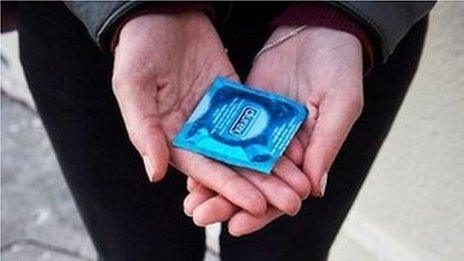HIV diagnoses in gay and bisexual men at 20-year low
- Published
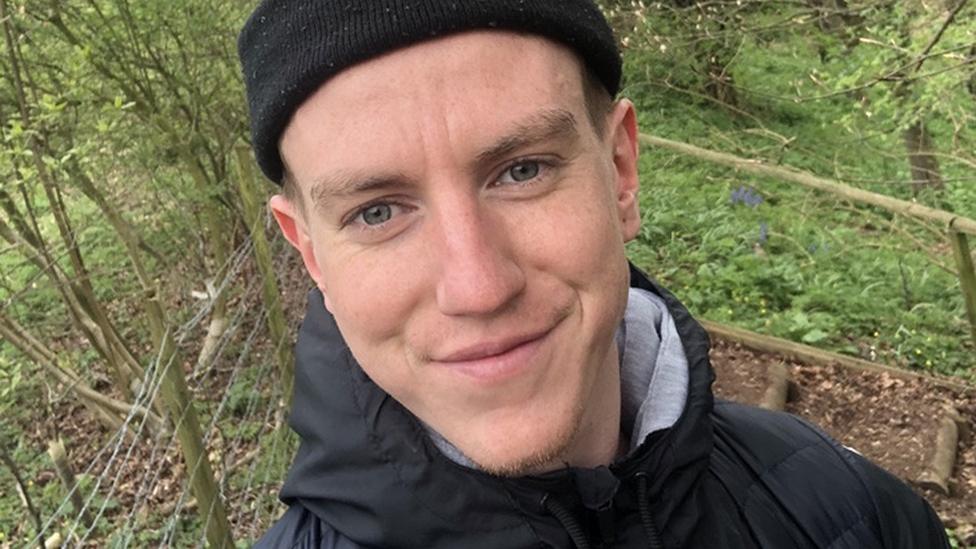
Andrew Bates works with the Terence Higgins Trust to raise awareness around HIV issues
The number of gay and bisexual men diagnosed with HIV has dropped to its lowest number in 20 years, says Public Health England (PHE).
A new report, external shows a drop in diagnosed cases across people of all sexualities and genders.
And it's not just because we've been in lockdown and not having sex with new people, because these numbers are all about 2019.
The report shows there were 1,700 new HIV diagnoses in gay and bisexual men last year, compared to the previous low of 1,500 in 2000.
Numbers overall dropped 10% from 4,580 diagnosed cases in 2018 to 4,139 in 2019.
It's a 34% decline from a 2014 peak, when there were 6,312 diagnoses in the UK.
There were 1,600 diagnosed cases in heterosexual adults in 2019 - and this is the first time the numbers between straight and gay and bi people have been so close.
Men who have sex with other men are one of the groups most at risk of contracting HIV.
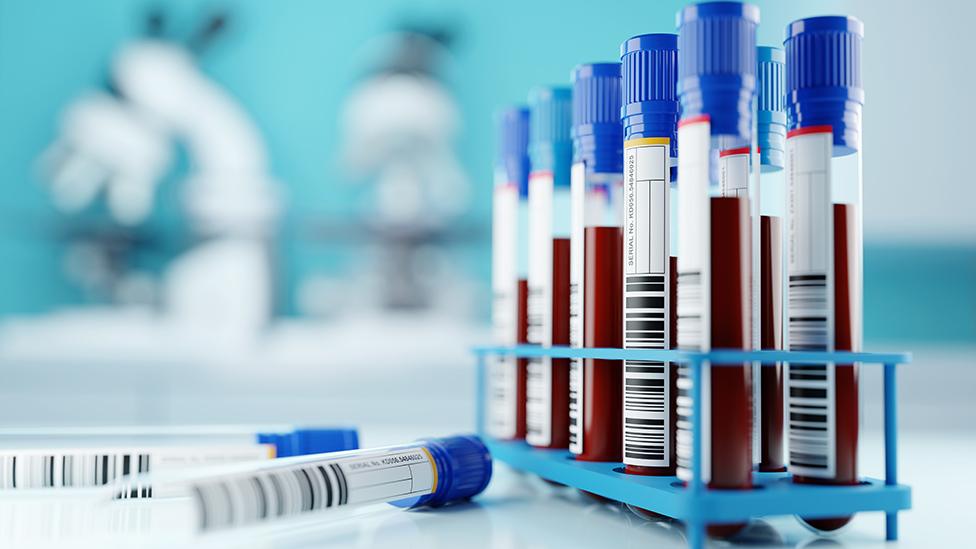
PHE says further progress can only be made if "inequalities that exist around sexuality, ethnicity and geography" are addressed
The report is good news to 26-year-old Andrew Bates. He's gay and was diagnosed as HIV+ when he was 21.
"At that time, it wasn't on my radar, and it sounds kind of ridiculous now, but I didn't think I was at risk," he tells Radio 1 Newsbeat.
"It was never spoken about so it was a scary time for me."
He says awareness around HIV, prevention and treatment today hopefully makes a new HIV diagnosis for someone now much less difficult than it was for him.
"I would hope that because of speaking about it more than we were then - even though it's just five years ago - that people who do go through that process now, who have received a diagnosis, it's not as worrying."
Andrew has been on medication since shortly after his diagnosis and is now "undetectable", which means the amount of the HIV virus in his body is so low, he can't pass it on to someone else.
Why are HIV diagnoses falling?
PHE says the decline in cases among gay and bisexual men can be linked to the use of condoms, PrEP, frequent HIV testing and starting on HIV therapy soon after diagnosis.
PrEP is a drug you can take that prevents you from catching HIV. The government provided funds to local authorities to provide the drug on the NHS to people most at risk of infection.
This was delayed from April, and HIV charity Terence Higgins Trust says the six-month wait is "frustrating" after seeing the PHE report and the progress that was made last year.
"Terrence Higgins Trust is still hearing story after story of people being turned away from clinics with no PrEP and no way of accessing this effective HIV prevention drug," says Ian Green, chief executive of the charity, in a statement.
Andrew believes another factor is changes in how sex education is taught in schools.
"Schools weren't talking about LGBT matters within sex education," he says.
"When I was in school, it was never spoken about, I think HIV was only ever brought up in a science lesson once in biology.
"I don't want to speak for teenagers now but we're told that they have a bit more of a healthier perspective on sex and relationships and growing up with these different forms of sexuality."
'End HIV transmissions by 2030'
"Frequent HIV testing, the offer of PrEP among those most at risk of HIV, together with prompt treatment among those diagnosed, remain key to ending HIV transmission by 2030," says Dr Valerie Delpech, head of HIV surveillance at PHE.
"Further progress can only be achieved if we also address the inequalities in reducing HIV transmission that exist around sexuality, ethnicity and geography."
Andrew's hopeful HIV transmissions in the UK can end even sooner than that.
"You think of what we've achieved and if we keep going up the rate that we've been going at, the we'll get there even sooner."


Follow Newsbeat on Instagram, external, Facebook, external, Twitter, external and YouTube, external.
Listen to Newsbeat live at 12:45 and 17:45 weekdays - or listen back here.
- Published6 May 2020
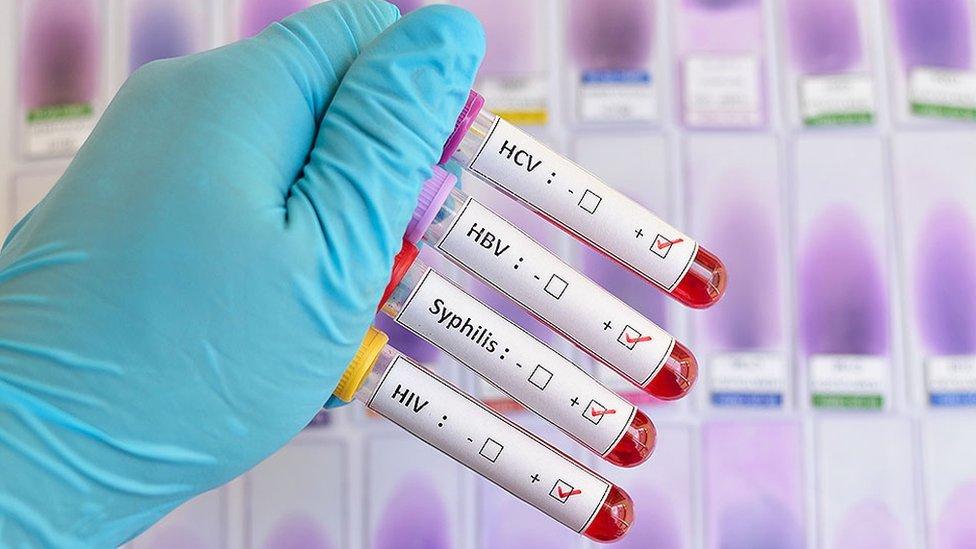
- Published11 May 2021
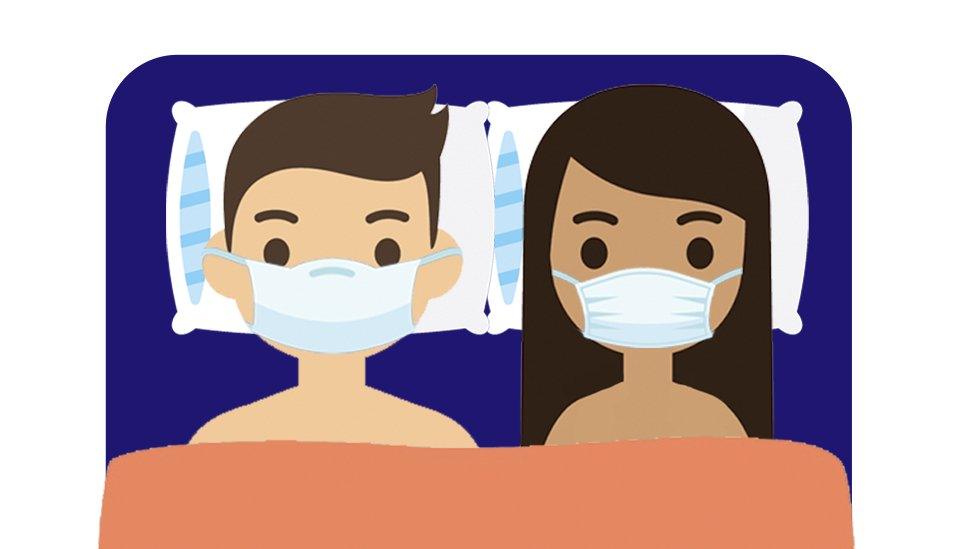
- Published3 September 2020
